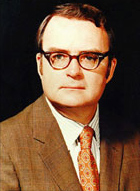A Quote by Richard Koch
80% of the results come from 20% of the causes. A few things are important; most are not.
Related Quotes
Economists often talk about the 80/20 Principle, which is the idea that in any situation roughly 80 percent of the “work” will be done by 20 percent of the participants. In most societies, 20 percent of criminals commit 80 percent of crimes. Twenty percent of motorists cause 80 percent of all accidents. Twenty percent of beer drinkers drink 80 percent of all beer. When it comes to epidemics, though, this disproportionality becomes even more extreme: a tiny percentage of people do the majority of the work.
There are two synergistic approaches for increasing productivity that are inversions of each other:
1. Limit tasks to the important to shorten work time (80/20).
2. Shorten work time to limit tasks to the important (Parkinson's Law).
The best solution is to use both together: Identify the few critical tasks that contribute most to income and schedule them with very short and clear deadlines.
You go into a community and they will vote 80 percent to 20 percent in favor of a tougher Clean Air Act, but if you ask them to devote 20 minutes a year to having their car emissions inspected, they will vote 80 to 20 against it. We are a long way in this country from taking individual responsibility for the environmental problem.
The Tao teaches us to let go of things. Use the 80/20 rule. If you take all your clothes, you'll find out that you only wear 20 percent of them. Take what you have and don't use and circulate it. Give stuff to people who truly need it. After all, we come into this world with nothing; we leave this world with nothing.
This is the thing to bomb. This is the beginning—from "I" to "we". If you who own the things people must have could understand this, you might preserve yourself. If you could separate causes from results, if you could know that Paine, Marx, Jefferson, Lenin were results, not causes, you might survive. But that you cannot know. For the quality of owning freezes you forever into "I", and cuts you off forever from the "we".































